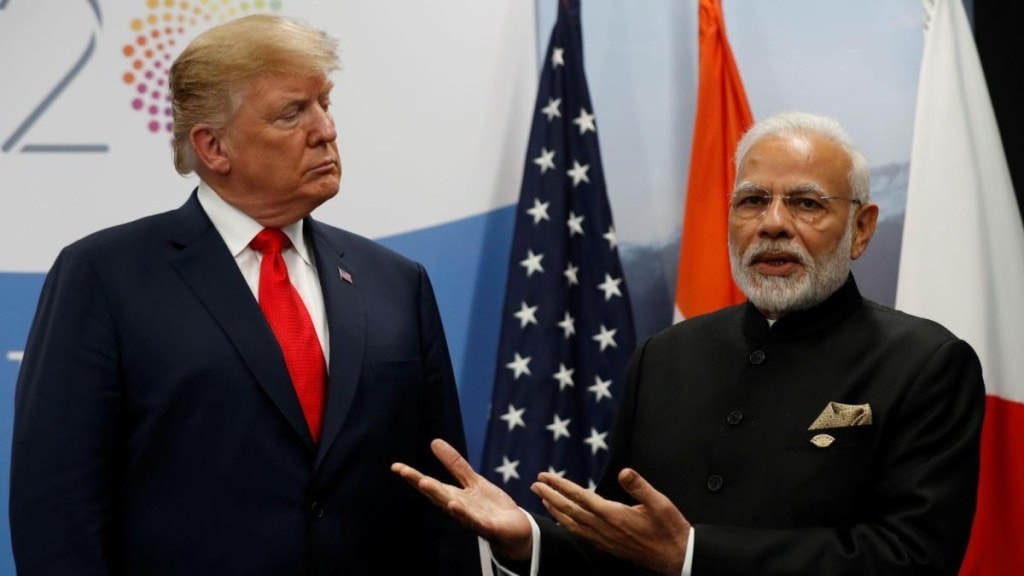India has issued a strong response after the US imposed an additional 25% tariff for its continued purchase of Russian oil. President Donald Trump signed an executive order to this effect on Wednesday — mere days after the White House implemented a 25% reciprocal tariff against New Delhi. An executive order passed on Wednesday said the additional tariffs would be implemented approximately 21 days after the signing date. This will raise the overall duty to a whopping 50% from the end of August.
“The United States has in recent days targeted India’s oil imports from Russia. We have already made clear our position on these issues, including the fact that our imports are based on market factors and done with the overall objective of ensuring the energy security of 1.4 billion people of India. It is therefore extremely unfortunate that the US should choose to impose additional tariffs on India for actions that several other countries are also taking in their own national interest. We reiterate that these actions are unfair, unjustified and unreasonable. India will take all actions necessary to protect its national interests,” the MEA said.
What did Trump say?
“I find that the Government of India is currently directly or indirectly importing Russian Federation oil….Accordingly, and as consistent with applicable law, articles of India imported into the customs territory of the United States shall be subject to an additional ad valorem rate of duty of 25%” Trump wrote in an executive order.
The 25% duty will apply to goods entered or withdrawn for consumption in the US starting 21 days after the date of this order — with an exception for goods that were already loaded on a vessel and in headed towards the US before the cutoff time. Some key segments such as electronics and pharma continued to be exempt from this additional rate.
Stacking of duties
The 25% tariff will be added on top of existing levies or fees — except for goods that are already covered by tariffs imposed under Section 232 of the Trade Expansion Act. Section 232 duties currently apply primarily to steel, aluminum, autos, auto parts, and some other materials considered vital to national security.
Trump also mandated that products facing this tariff could only be admitted into foreign trade zones with “privileged foreign status” after the effective date — except for articles eligible for “domestic status”.
‘If a foreign country retaliates…’
The US President indicated that the executive order could be modified on the basis of retaliatory action or cooperation from a foreign nation.
“Should a foreign country retaliate against the United States in response to this action, I may modify this order to ensure the efficacy of the actions herein ordered…Should the Government of the Russian Federation or a foreign country impacted by this order take significant steps to address the national emergency described in section 1 of this order and align sufficiently with the United States on national security, foreign policy, and economic matters, I may further modify this order,” he added.

